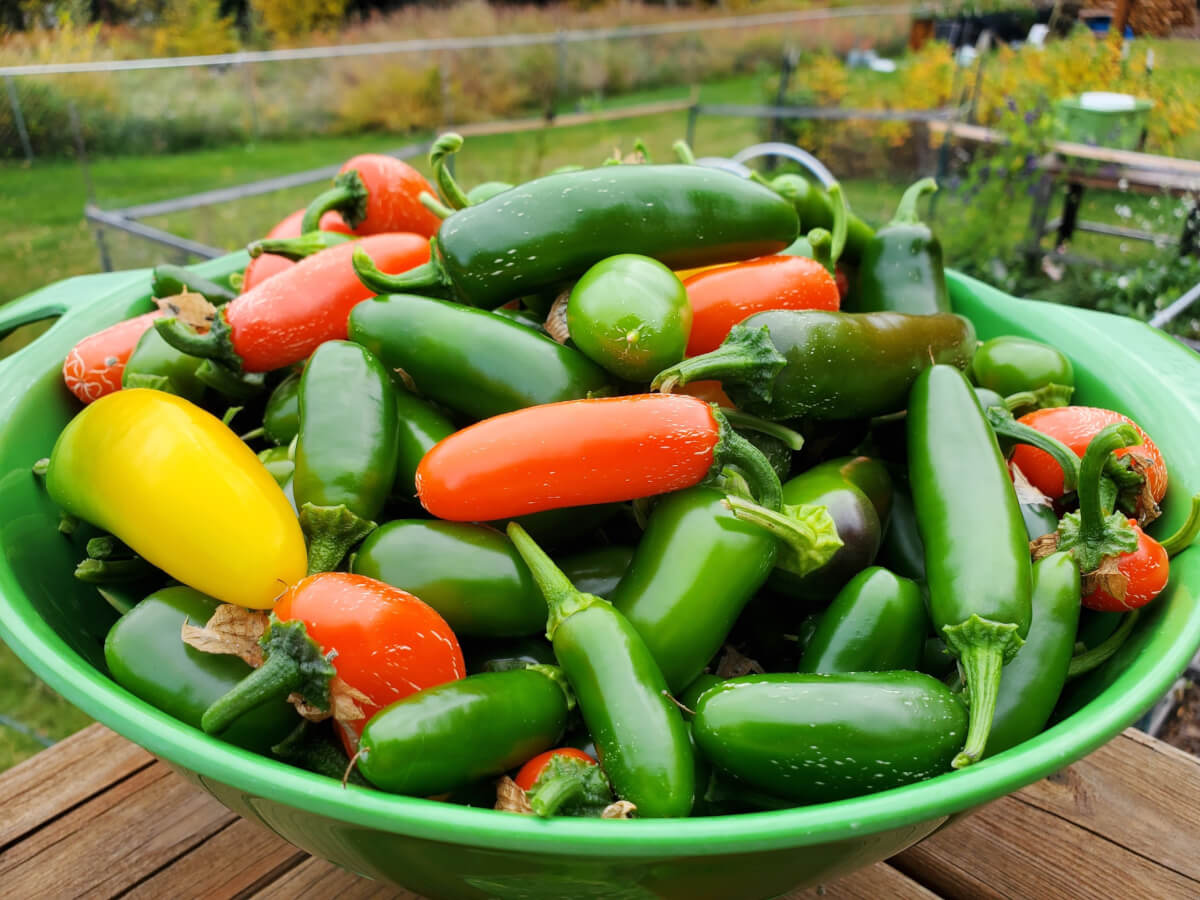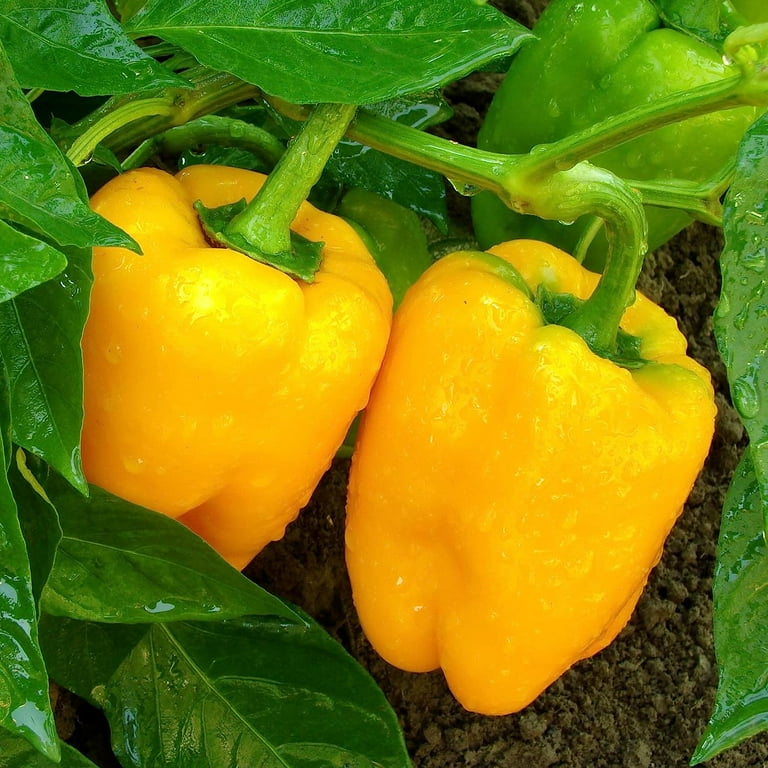Best Fertilizers for Peppers: Attain Superior Results in Your Yard
Best Fertilizers for Peppers: Attain Superior Results in Your Yard
Blog Article
Organic Vs. Synthetic Fertilizers: Which Is Best for Nurturing Healthy Pepper Plants?
In the world of supporting healthy pepper plants, the choice between natural and artificial plant foods stands as an essential decision with significant ramifications. While both options purpose to supply necessary nutrients to support plant growth, the subtleties of their effect on the soil, plant wellness, and the atmosphere stimulate a debate that mirrors throughout the gardening neighborhood. Comprehending the distinct benefits and prospective pitfalls of each plant food kind is important for pepper cultivators looking for to maximize their yields while maintaining an eco-conscious and sustainable technique.
Benefits of Organic Plant Foods
Organic plant foods provide an environmentally-friendly and sustainable approach to beneficial pepper plants, providing crucial nutrients without the usage of synthetic chemicals. These all-natural plant foods are obtained from organic resources such as compost, manure, bone meal, and algae, promoting dirt health and wellness and biodiversity. Unlike artificial plant foods, organic choices release nutrients slowly, making certain a constant and balanced supply for pepper plants to grow.
One substantial benefit of natural fertilizers is their ability to improve dirt framework and water retention. By boosting dirt health and wellness, natural fertilizers promote beneficial microbial activity, which helps in nutrient uptake by pepper plants. Additionally, organic plant foods reduce the risk of chemical run-off, shielding water sources from contamination and guarding the environment.
Additionally, natural fertilizers contribute to lasting dirt fertility by promoting the growth of useful dirt microorganisms. These microorganisms help break down organic matter, launching nutrients in a kind that is easily accessible to pepper plants. best fertilizers for peppers. By promoting a healthy soil ecological community, natural plant foods sustain sustainable pepper farming practices that benefit both plants and the environment
Drawbacks of Synthetic Fertilizers
Synthetic fertilizers, in contrast to their organic counterparts, posture different drawbacks when used to nurture pepper plants, influencing both plant wellness and ecological sustainability. One significant disadvantage of synthetic fertilizers is their tendency to seep nutrients from the soil quickly.
Additionally, the overuse of synthetic plant foods can add to water pollution. Excess plant foods not absorbed by plants can remove right into water bodies, causing eutrophication, where algae flowers diminish oxygen levels in the water, harming marine life. Artificial plant foods are normally obtained from non-renewable resources, such as fossil gas, contributing to carbon emissions and ecological degradation throughout their production.
Nutrient Absorption Comparison
When comparing synthetic and natural plant foods in terms of nutrient absorption, natural plant foods have the advantage of supplying an extra balanced and slow-release source of nutrients. Organic fertilizers have a range of macro and trace elements that are not only helpful for the plants yet additionally advertise healthy and balanced dirt microbial task, which aids in nutrient uptake.
In addition, organic plant foods boost soil structure and water retention ability, allowing pepper plants to access nutrients more efficiently. This improved soil quality helps with root advancement, allowing better nutrient absorption. Synthetic fertilizers, although initially enhancing plant development as a result of their high nutrient focus, may hinder long-term nutrient absorption by degrading dirt health in time.
Environmental Impact Considerations

On the other hand, artificial fertilizers, although often even more concentrated and immediately readily available to plants, can have harmful effects on the setting otherwise used appropriately (best fertilizers for peppers). Their production calls for high energy inputs, bring about greenhouse gas discharges and adding to climate adjustment. The runoff of excess artificial fertilizers can pollute water resources, leading to eutrophication and damaging water communities.
Finest Plant Food Practices for Peppers
To achieve this, it is vital to comply with finest plant food techniques customized to the details demands of pepper plants. One critical technique is to execute a dirt examination prior to applying any fertilizers.
Another important technique is look here to feed pepper plants at the correct time. Commonly, peppers take advantage of getting fertilizer at planting and afterwards once more when they begin to flower. Over-fertilizing can result in nutrient inequalities and damage the plants, so it is essential to adhere to recommended application prices.
In addition, selecting a balanced plant food with an NPK proportion that suits pepper plants' requirements is basic. Organic fertilizers, such as compost or manure, find out this here can be superb options as they release nutrients gradually and enhance soil framework gradually. Nevertheless, synthetic plant foods can offer a fast nutrient boost when needed. Eventually, integrating artificial and organic plant foods sensibly can aid nurture healthy and balanced pepper plants while lessening environmental influence.
Conclusion

Organic plant foods offer an environmentally-friendly and lasting method to beneficial pepper plants, providing vital anchor nutrients without the usage of artificial chemicals. Unlike synthetic fertilizers, natural alternatives release nutrients slowly, ensuring a constant and well balanced supply for pepper plants to flourish.
Artificial plant foods, in comparison to their organic counterparts, present numerous disadvantages when used to nourish pepper plants, influencing both plant wellness and environmental sustainability. When comparing synthetic and organic plant foods in terms of nutrient absorption, natural plant foods have the benefit of offering a much more well balanced and slow-release source of nutrients.Moreover, organic fertilizers boost dirt structure and water retention capacity, allowing pepper plants to access nutrients much more effectively.
Report this page